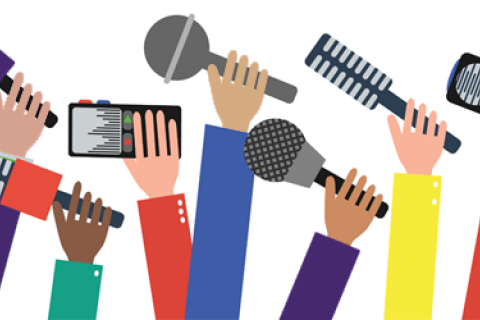Zelenskyy meets French, German leaders
Ukrainian President Volodymyr Zelenskyy has held a trilateral meeting with German Chancellor Olaf Scholz and French President Emmanuel Macron in Brussels.
Zelenskyy thanked Germany and France for supporting Ukraine amid Russia's military threat, as well as for their consistent efforts in the Normandy format negotiations. Zelenskyy noted that Ukraine was not falling for provocations at the border, had no aggressive intentions and remained committed to diplomatic means to resolve the situation.
"I expect Russian troops and weapons to be withdrawn from Ukraine's borders as soon as possible. For now, despite continued diplomatic efforts, they remain near our borders," the Zelenskyy added.
Zelenskyy meets French president
Zelenskyy met French President Emmanuel Macron on the sidelines of the Eastern Partnership summit.
Zelenskyy welcomed France's ambitious plans for its presidency of the EU Council in the first half of 2022 and expressed hope that the French presidency will pay special attention to Ukraine's security and countering Russian hybrid aggression in Europe.
"The leaders coordinated positions on the implementation of Ukraine's Euro-Atlantic aspirations. The head of state noted that Ukraine's course for NATO membership remains unchanged and support for this course in Ukrainian society continues to grow," the presidential office said.
Zelenskyy denies US pressure
President Volodymyr Zelenskyy has denied that the United States has been putting pressure on Ukraine to implement the political provisions of the Minsk agreements regarding the holding of elections in the occupied territories of Donetsk and Luhansk regions of Ukraine.
When asked at a briefing in Brussels whether he felt any pressure from his US partners regarding the need to hold elections in Donetsk and Luhansk regions in order to de-occupy these territories, Zelenskyy said: "I did not feel any pressure. If there is, I will definitely say so".
USA passes defence budget
The Senate passed the 2022 National Defense Authorization Act on 15 December, sending the annual policy bill to President Joe Biden's desk.
The document provides for $300 million in defence assistance to Ukraine.
Human rights
The Russian occupying authorities in Crimea have charged Crimean Tatar Majlis deputy chairman Nariman Dzhelyal with blowing up a gas pipeline in addition to sabotage, smuggling and handling of explosives in an organized group, his lawyer Mykola Polozov has said.
The investigation may send the indictment to the prosecutor's office by the end of this year, he suggested.
Russia
Roman Tsymbalyuk, the only Ukrainian journalist accredited in the Russian Federation, has been accused of extremism by the Russian authorities.
The Ukrainian Foreign Ministry said that it would give its full support to Tsymbalyuk.
Foreign Ministry spokesman Oleh Nikolenko said that the Russian authorities continued to scorch the media environment in Russia by branding disfavoured journalists and media outlets "extremists" and "foreign agents".
"The Foreign Ministry and the embassy in Moscow are in contact with Roman Tsymbalyuk. As a Ukrainian citizen, he will have our full support," Nikolenko tweeted.
Donbas
A Ukrainian serviceman was wounded in Donbas on 14 December amid seven ceasefire violations by Russia-backed militants, the Joint Forces Operation HQ has said.
Coronavirus
The Cabinet of Ministers has decided to extend the adaptive quarantine until 31 March 2022, Prime Minister Denys Shmyhal has said.
He recalled that over 40% of Ukrainian adults have already been vaccinated against the coronavirus.
"However, until the vaccination rate in Ukraine reaches 70% of the adult population, we must continue to comply with the established quarantine restrictions," he pointed out.
Crime
A court has sentenced to 11 years in prison a militant of the Russian occupying forces who was an aide to DPR terrorist Igor Bezler, the Security Service of Ukraine (SBU) has said.
It was established that the man had been filming interrogations of Ukrainian servicemen at the request of his ringleader. Then he edited and uploaded his "confessions" to the Internet.
The videos he had fabricated were used by representatives of the Russian special services for information sabotage against Ukraine.








